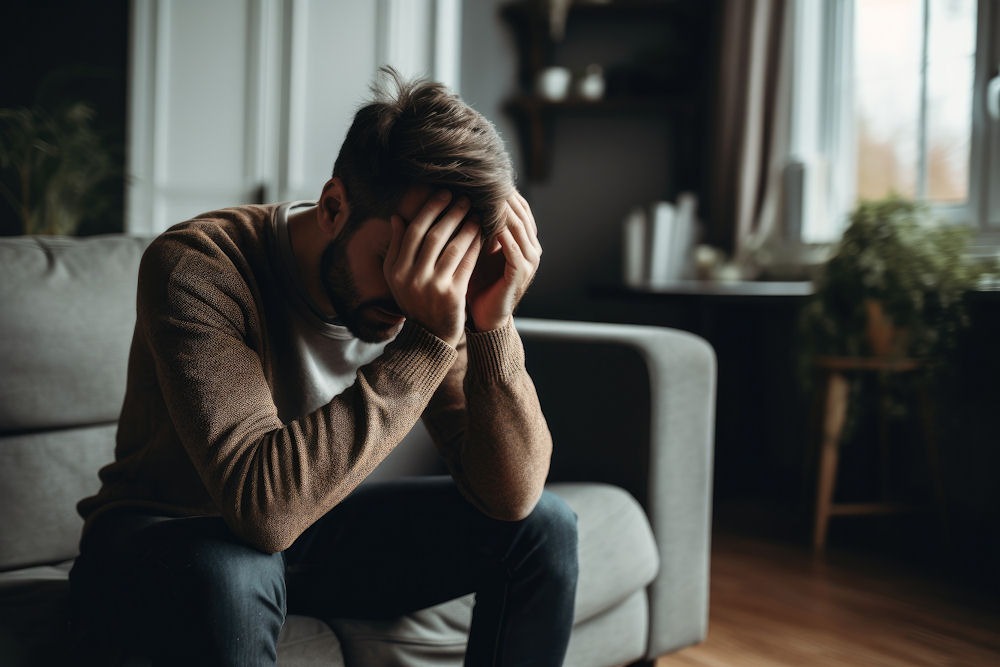The holiday season is often depicted as a time of joy, connection, and celebration. Yet, for many, it can also bring about feelings of sadness, anxiety, or depression. Understanding the reasons behind holiday-related depression and learning practical coping strategies can make this season more manageable and enjoyable.
Learn how to cope with depression during the holiday season by exploring coping strategies and the signs and common triggers for holiday-related depression.

Holiday Depression: Why It Happens
Holiday depression, or holiday blues, describes a mental health condition where an individual’s mood is negatively impacted around the holidays. This type of depression isn’t about a few uncomfortable moments throughout the holiday season, but a persistent sadness that causes difficulty accomplishing tasks and dampens moods.
This depression may happen for a few reasons. The festive period is filled with expectations of happiness and togetherness, which can inadvertently highlight feelings of loss, loneliness, or inadequacy. The pressure to feel cheerful, coupled with the hectic pace of holiday preparations, can be overwhelming. For those who have experienced loss, the holidays may serve as painful reminders of loved ones who are no longer present. Others may struggle with financial stress, social obligations, or strained family relationships, all of which contribute to feelings of depression.
Recognizing the Signs of Depression During the Holidays
If you or a loved one suspect you may have seasonal depression, it’s helpful to compare your symptoms to the signs of depression. Holiday depression may manifest differently for each person, but some common signs include:
- Persistent feelings of sadness or hopelessness
- Loss of interest in activities that once brought joy
- Difficulty concentrating or making decisions
- Changes in sleep patterns, such as insomnia or oversleeping
- Increased irritability or anxiety
- Fatigue and lack of energy
- Changes in appetite, leading to weight loss or gain
- Social withdrawal or avoidance of gatherings
Recognizing these signs early can help you take proactive steps to manage your mental health during the holiday season.
Common Triggers for Holiday-Related Depression
Several factors can contribute to depression during the holidays, including:
- Unrealistic Expectations: The portrayal of perfect holiday scenarios in media and advertising can create unattainable standards. You can still have a wonderful holiday season regardless if your celebration resembles common media tropes or not.
- Financial Stress: The pressure to buy gifts, host events, or travel can strain budgets and lead to anxiety. Decentralizing gifts during the holiday season may help you feel better.
- Loneliness: For those who are single, grieving, or geographically distant from loved ones, the holidays can amplify feelings of isolation.
- Family Conflict: Tensions or unresolved issues within families may resurface during gatherings. Since many families go without seeing each other between gatherings, there also may be unexpected changes.
- Seasonal Affective Disorder (SAD): Reduced daylight hours during the winter months can trigger or exacerbate depression for some individuals.
- Overcommitment: During the holiday season, individuals may juggle more invitations to parties and festivities than usual. Taking on too many responsibilities or attending too many events can lead to burnout.
Coping Strategies for Managing Holiday Depression
While holiday depression can feel overwhelming, there are actionable steps you can take to ease the emotional burden. By adopting practical strategies, you can create a more balanced and fulfilling holiday experience, even amidst challenges. The following tips are designed to help you navigate this season with resilience and self-compassion.
Set realistic expectations for holiday celebrations. It may be difficult not to compare your celebrations to those that seem grand, but it’s more important to have an authentic and stress-free holiday than a mainstream one.
Avoid falling into the trap of perfectionism. Let go of the idea that every holiday moment must be magical or picture-perfect. Instead, focus on what truly matters to you, whether it’s spending quality time with loved ones, practicing traditions, or simply taking a moment to relax. Simplifying your plans and saying “no” to unnecessary commitments can reduce anxiety and create a more meaningful experience.
It’s also important to remember that you can still have great holidays even after setbacks. If something doesn’t go as planned, take a deep breath, reflect on what truly matters to you, and try to move past the experience.
Self-care is vital, especially during a busy and emotionally charged time of year. Make time for activities that nourish your body and mind, such as:
- Regular exercise, which boosts mood by releasing endorphins
- Meditation or deep-breathing exercises to reduce stress
- Adequate sleep to maintain energy and focus
- Balanced eating habits to avoid mood swings from sugar crashes
Prioritizing self-care and help ensure you take breaks throughout the holiday season and monitor your physical health. Often, improving your physical health can contribute to an improvement in mood as well.
Many holiday traditions include gift-giving, which can create financial strain. To manage financial stress, set a realistic holiday budget and stick to it. You can do this by reviewing your income, savings, and other financial responsibilities. Ensure that you first have enough money to manage essential expenses, and then determine how much you can spend on gifts.
You may consider planning ahead and buying gifts throughout the year to save for the holiday season. This can help you avoid spending a large sum at once and may help alleviate stress. Remember that meaningful gifts don’t have to be expensive. Handwritten letters, homemade treats, or acts of service can be just as valuable as store-bought presents. You can also thrift gifts to save money and promote sustainability.
Openly communicate with friends and family about gift-giving expectations to avoid unnecessary pressure. This can help you set boundaries for gifts and clarify your loved ones’ plans around this holiday tradition.
Support systems help ensure you keep healthy habits and can provide relief when you’re struggling. Lean on trusted friends, family members, or support groups for encouragement and understanding. You may also consider going to therapy to add professional guidance to your support system. This ensures that you receive the healthiest advice and can create an individualized plan for handling holiday depression.
It’s important to remember that you’re not alone—many feel stress around the holidays and suffer from seasonal depression. Sometimes, simply talking about your feelings can provide relief. If you’re unable to connect in person, consider phone calls or virtual meetups as a way to stay in touch.
Many associate the holiday season with a time of companionship and family bonding. This may be triggering to those who have lost a loved one or don’t have a happy and safe family. For some families, it also may be difficult to spend the holiday together due to living arrangements and other circumstances.
If you’re spending the holidays alone, consider volunteering at a local charity or community event. Helping others can create a sense of purpose and connection. Alternatively, engage in solo activities that bring you joy, such as cooking your favorite meal, watching a beloved movie, or exploring a new hobby.
Handling holiday depression can cause individuals to revert to unhealthy habits. While it may be tempting to overindulge in food, alcohol, or other substances as a coping mechanism, these behaviors can worsen feelings of depression. Instead, prioritize moderation and balance—avoid overloading your schedule, permit yourself to relax, and try to eat balanced meals.

How to Navigate Holiday Gatherings with Depression
Social events during the holidays can feel daunting if you’re struggling with depression. To make gatherings more manageable, consider these tips:
- Set boundaries. Reflect on your needs and communicate your limits with hosts or family members.
- Take breaks. Step outside or find a quiet space if you feel overwhelmed.
- Bring a supportive companion. Having a trusted friend or partner by your side can ease social anxiety.
- Focus on meaningful interactions. Prioritize spending time with those who uplift and support you.
Seeking Professional Help for Holiday Depression
If your depression persists or becomes overwhelming, it’s essential to seek professional support. At Laguna Shores Mental Health, we provide valuable tools and resources to help you manage your mental health.
Our residential program may be the perfect way to take care of yourself during the holiday season. Located in Orange County California, we pride ourselves on maintaining a scenic facility and peaceful atmosphere to help treat mental health issues. With a customized treatment plan, we can help you overcome any anxiety or depression related to the holiday season and help you develop a plan to manage triggers and unwanted emotions.
The holiday season doesn’t have to be an insurmountable challenge. By recognizing triggers, setting realistic expectations, and prioritizing self-care, you can navigate this time of year with greater resilience and peace of mind. Remember, it’s okay to ask for help and to focus on what truly matters to you. Don’t hesitate to reach out to us—it’s the first step toward recovery. With the right support and strategies, you can celebrate the holidays in peace.

 Matthew Beck B.A, M.A, LMFT
Matthew Beck B.A, M.A, LMFT 


